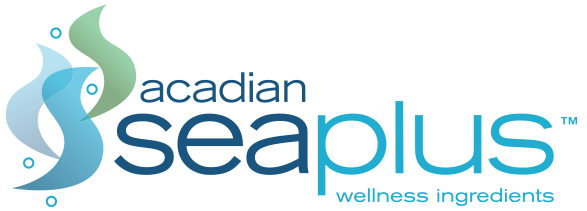When consumers seek to make up for nutritional shortfalls, they often run into a harsh truth: there are no magical superfoods to satisfy all their nutrient needs. That said, nutritionists and healthcare professionals will remind their patients that by consuming a variety of nutrient-rich foods people can fulfill their nutrient requirements.
Many red seaweeds are nutrient dense, and have the potential to be a big part of the solution. Though these marine resources aren’t magic elixirs, Chondrus crispus, Chondracanthus chamissoi, and Palmaria palmata, red seaweeds available through Acadian SeaPlus™ can help consumers get the nutrients they need to lead healthy lives.
Here’s how these marine resources make a positive contribution to gut, thyroid, heart and muscle health.
Supports Gut Health
Good health starts with proper digestion, and proper digestion begins with an ample supply of beneficial gut microbes. These probiotic microorganisms contribute to healthy metabolism, but only when they have an abundance of dietary fiber to feed upon (i.e. prebiotic). Some red seaweeds offer high concentrations of prebiotic fiber, essential for probiotics to thrive in the human GI tract.
Take the red seaweed Chondrus crispus as an example. There are 22.25 grams of soluble fiber for every 100g of Chondrus. Some other red seaweeds have equally considerable amounts of dietary fiber. The average adult only requires 25 to 30 grams of seaweed per day to meet their minimum fiber intake, which enables supplement manufacturers to meet consumer needs with minimal amounts of these red seaweeds.
Maintains Thyroid Functionality
In addition to a healthy gut, people need an active thyroid gland to maintain a steady metabolism. Thyroids are at their best when supplied with a precise range of iodine in the diet, allowing this gland to produce hormones necessary for growth and development. Not all foods contain this iodine, but most red seaweeds are a good source of this mineral.
Though most red seaweeds have lower iodine content than most brown seaweeds, many red seaweeds offer manufacturers and nutritionists a more moderate concentration. For example, the red seaweed Palmaria palmata contains 20–200 µg/g, which falls within the minimum 150 µg daily iodine intake that people need in their diet. This is an optimal concentration range because only with careful consumption can people avoid hyperthyroidism caused by iodine overconsumption and still get the full iodine health benefits.
Boosts Heart Health
What’s the key to a healthy heart? Numerous factors keep this vital muscle pumping at full strength and efficiency, ranging from bioactive compounds like peptides to minerals like potassium (which helps lower blood pressure) and magnesium. Consumers who get enough of these nutrients can regulate their cholesterol, lessen inflammation, and manage blood pressure with greater ease.
Red seaweed is a perfect source of all these nutrients. Additionally, studies have shown that the flavonoids and polyphenols found in Chondrus crispus display rich antioxidant and anti-inflammatory properties that are worth studying.
Supports Protein
Muscles, hormones, and enzymes all rely upon a steady source of protein to grow and function. Increasingly consumers are eager to find sustainable and eco-friendly sources of these organic compounds to add to their diet. Though legumes have long been used as an alternative source of this nutrient, the protein in seaweeds is gaining in popularity as a healthy source as well.
Can seaweed cover all your protein needs? Not necessarily, but when different species are mixed with complementary essential amino acids, they can “form protein blends that are nutritionally on par with animal products such as milk and whey.” Plus, consumers can get these nutritional benefits without the saturated fat.
Bringing All the Benefits Together
Red seaweed has the potential to offer exceptional advantages to consumers, but it’s important for nutrition brands to prioritize sustainability and quality in their sources to keep customers happy, healthy, and coming back for more. That’s where Acadian SeaPlus™ can help.
We harvest wild seaweed species in a way that preserves this incredible resource for future generations. Our eco-friendly cultivation methods protect marine ecosystems and allow for robust regrowth at our harvest sites. Plus, our rigorous quality control measures guarantee the delivery of premium red seaweeds through every stage of production.
Though there’s never going to be a natural source of every nutritional need, supplements made with red seaweed can get closer to helping consumers make their wellness routines go down easy.
Note: Before trying to unlock the benefits of red seaweed in your diet or add any new supplement into your routine, we recommend you consult your healthcare professional, especially if you have existing health conditions or are on medication.
Do you want to unlock the benefits of red seaweed in your products? The Acadian SeaPlus™ team can connect your customers with the nutrition they need.
Contact Us
Related Articles
Can Protein in Seaweed Give People the Nutrition They Want?
What’s Your Diet Missing? 4 Health Benefits of Dulse Seaweed
